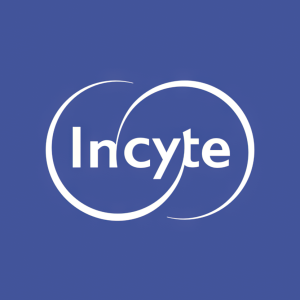Incyte Announces the Validation by the European Medicines Agency of its Marketing Authorization Application for Retifanlimab as a Treatment for Patients with Squamous Cell Anal Carcinoma (SCAC)
Incyte (Nasdaq:INCY) today announced the validation of the Company’s Marketing Authorization Application (MAA) for retifanlimab, an intravenous PD-1 inhibitor, as a potential treatment for adult patients with locally advanced or metastatic squamous cell anal carcinoma (SCAC) who have progressed on, or who are intolerant of, platinum-based chemotherapy. The European Medicines Agency’s (EMA) validation of the MAA confirms that the submission is sufficiently complete to begin the formal review process.
“While the incidence of SCAC is increasing in Europe, treatment options for advanced disease are limited in their effectiveness, and there are no approved options once patients have progressed on standard therapy,” said Lance Leopold, M.D., Group Vice President, Immuno-Oncology Clinical Development, Incyte. “The EMA validation of the MAA for retifanlimab – which follows the recent U.S. Food & Drug Administration acceptance of our Biologics License Application for Priority Review – brings us closer to providing a new option for patients in Europe with this rarely studied tumor.”
The MAA is based on data from the Phase 2 POD1UM-202 trial evaluating retifanlimab in previously treated patients with locally advanced or metastatic SCAC who have progressed on, or are intolerant of, standard platinum-based chemotherapy which were presented at the 2020 virtual ESMO Congress.
SCAC is associated with human papillomavirus (HPV) and HIV infections and accounts for almost
About POD1UM-202
POD1UM-202 (NCT03597295) is a global, open-label, single-arm, multicenter, Phase 2 study evaluating retifanlimab in patients with squamous cell anal carcinoma (SCAC) who have progressed on, or who are intolerant of, platinum-based chemotherapy. Retifanlimab 500 mg is administered intravenously every 4 weeks.
The primary endpoint is objective response rate (ORR) as determined by independent central review using RECIST v1.1. Secondary endpoints include additional measures of clinical benefit ‒ duration of response (DOR), disease control rate (DCR), progression-free survival (PFS) and overall survival (OS); safety and pharmacokinetics.
For more information about the study, please visit https://clinicaltrials.gov/ct2/show/NCT03597295.
About POD1UM
The POD1UM (PD1 Inhibitor Clinical Program in Multiple Malignancies) clinical trial program for retifanlimab includes POD1UM-202, POD1UM-303 in SCAC along with and benchmarking studies in endometrial cancer, Merkel cell carcinoma and other solid tumors. A Phase 3 trial in NSCLC (POD1UM-304) is also enrolling, as are studies in combination with epacadostat, pemigatinib, and other development compounds in the Incyte portfolio.
About Retifanlimab
Retifanlimab (formerly INCMGA0012), an investigational intravenous anti-PD1 antibody, is currently under evaluation in registration-directed trials as a monotherapy for patients with microsatellite instability-high endometrial cancer, Merkel cell carcinoma and squamous cell anal carcinoma (SCAC); and in combination with platinum-based chemotherapy for patients with non-small cell lung cancer.
Retifanlimab has been granted Orphan Drug Designation by the U.S. Food and Drug Administration (FDA) for the treatment of anal cancer, and the Biologics License Application for retifanlimab has been accepted for Priority Review.
In 2017, Incyte entered into an exclusive collaboration and license agreement with MacroGenics, Inc. for global rights to retifanlimab. In 2019, Incyte and Zai Lab announced a collaboration and license agreement for the development and commercialization of retifanlimab in Greater China.
About Incyte
Incyte is a Wilmington, Delaware-based, global biopharmaceutical company focused on finding solutions for serious unmet medical needs through the discovery, development and commercialization of proprietary therapeutics. For additional information on Incyte, please visit Incyte.com and follow @Incyte.
Forward Looking Statements
Except for the historical information set forth herein, the matters set forth in this press release, including statements about whether or when the EMA may authorize retifanlimab for the treatment of patients with squamous cell anal carcinoma (SCAC), the potential of retifanlimab to provide a meaningful treatment for patients with SCAC, the retifanlimab development program, and the safety and efficacy of retifanlimab in patients with SCAC, contain predictions, estimates and other forward-looking statements.
These forward-looking statements are based on the Company’s current expectations and subject to risks and uncertainties that may cause actual results to differ materially, including unanticipated developments in and risks related to: unanticipated delays; further research and development and the results of clinical trials possibly being unsuccessful or insufficient to meet applicable regulatory standards or warrant continued development; the ability to enroll sufficient numbers of subjects in clinical trials; determinations made by European regulatory authorities or other regulatory authorities, including the U.S. FDA; the Company’s dependence on its relationships with its collaboration partners; the efficacy or safety of the Company’s products and the products of the Company’s collaboration partners; the acceptance of the Company’s products and the products of the Company’s collaboration partners in the marketplace; market competition; sales, marketing, manufacturing and distribution requirements; greater than expected expenses; expenses relating to litigation or strategic activities; and other risks detailed from time to time in the Company’s reports filed with the Securities and Exchange Commission, including its Form 10-K for the year ending December 31, 2020. The Company disclaims any intent or obligation to update these forward-looking statements.
1 Ghosn M, et.al. Anal cancer treatment: current status and future perspectives. World J Gastroenterol 2015;21:2294-2302.
2 Globocan
3 Glynne-Jones R, et al. Ann Oncol. 2014;25(suppl 3):iii10–iii20.
View source version on businesswire.com: https://www.businesswire.com/news/home/20210226005125/en/







